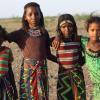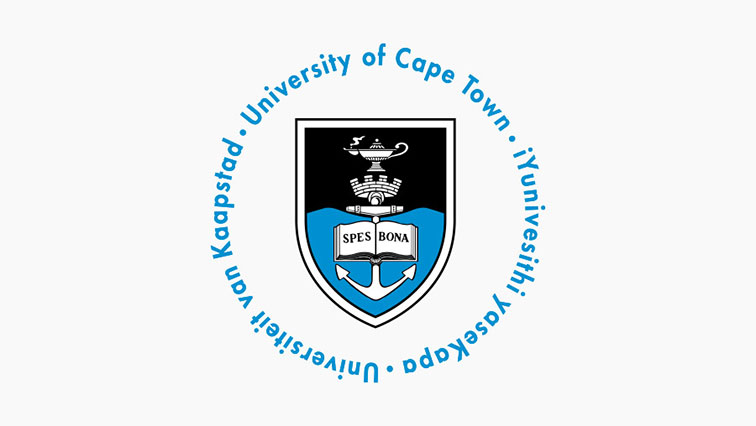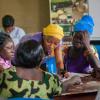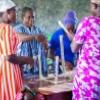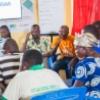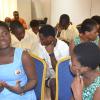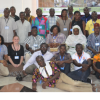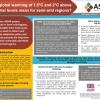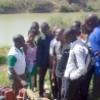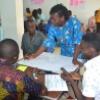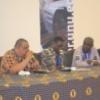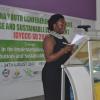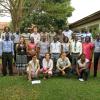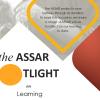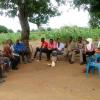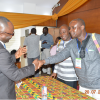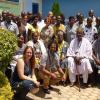Jump to: ASSAR's focus in Ghana | Key insights | Country partners & contact details | News stories | Outputs
West Africa’s semi-arid regions are home to an incredibly rich history of cultures that have thrived despite highly demanding environmental conditions. Today, people living in these dryland areas face a suite of complex challenges. These are related to increasingly erratic rainfall, rising temperatures, droughts, poor soil fertility, and floods, combined with high population growth, gender inequalities, ineffective decentralisation of governance, and reliance on climate-dependent livelihoods.
From 2014-2018, ASSAR’s Ghana team worked in the Lawra and Nandom districts of Ghana’s Upper West region to better understand how these interlinked challenges are impacting people’s capacity to adapt. Our team comprised researchers and technical officers from the University of Ghana’s Institute for Environment and Sanitation Studies (IESS) along with master’s and PhD students from IESS and other university programs. We worked with partners and stakeholders from national to household levels to understand differentiated vulnerabilities, identify barriers to adaptation, and explore what needs to happen to support more effective, sustained, and widespread adaptation.
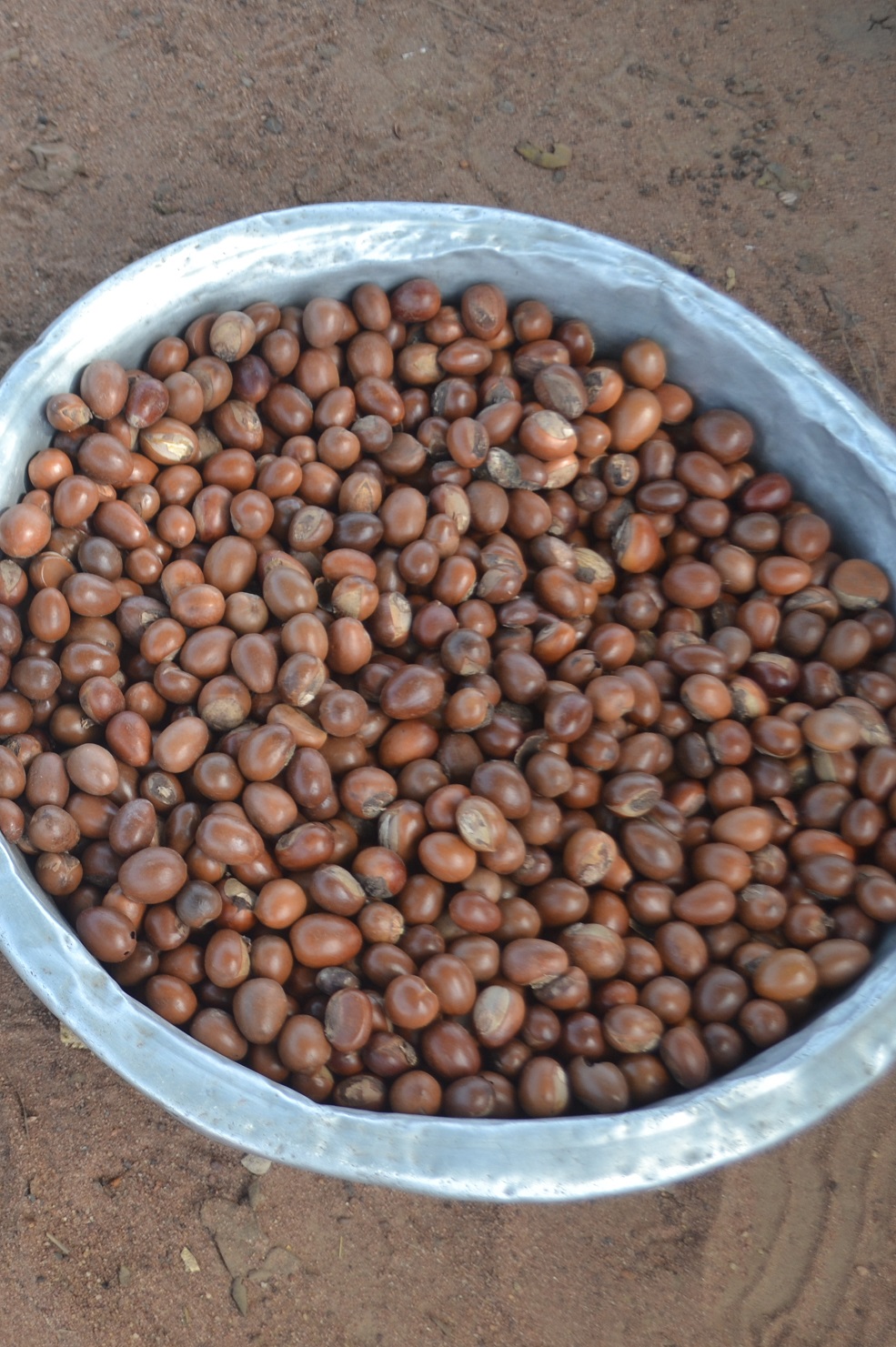
Key insights
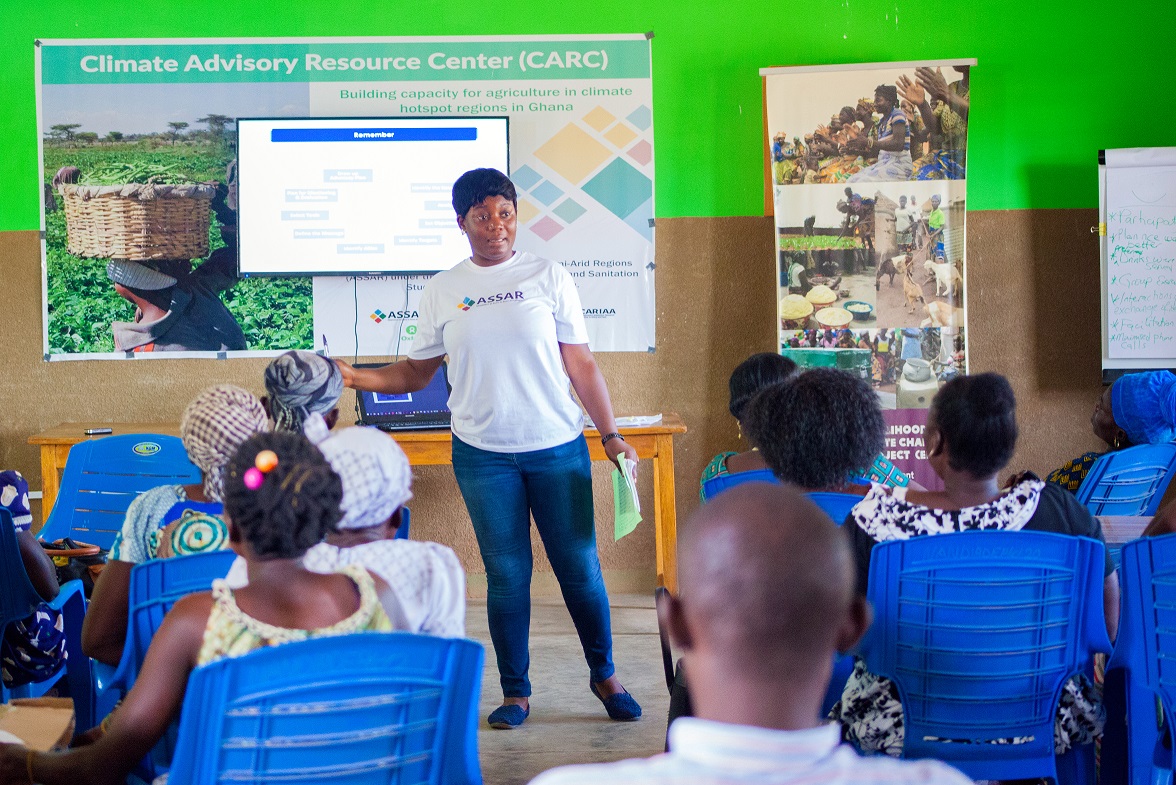
Intersecting climatic and non-climatic challenges manifest in varied ways for different groups and individuals. Therefore, researchers, policy makers, and practitioners should view these combined stressors holistically and use this more complete understanding when making decisions that will impact livelihoods and adaptation options of different social groups.
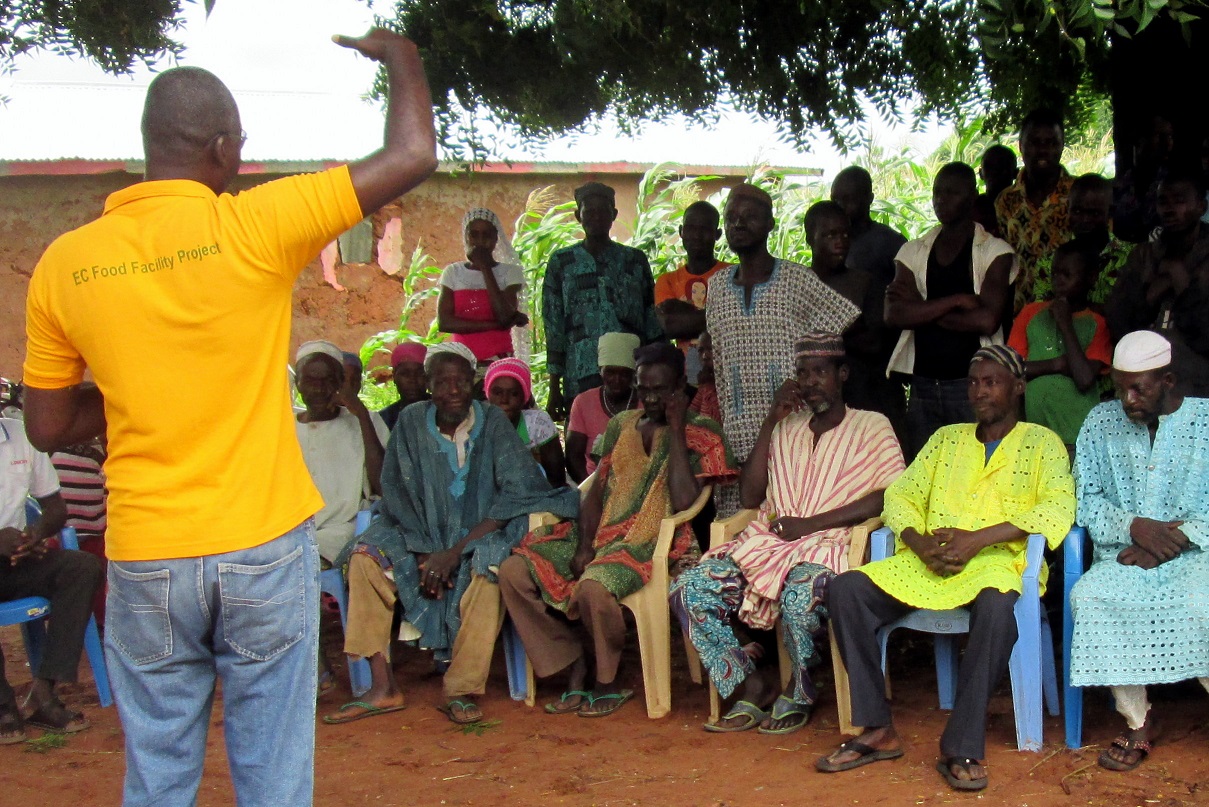
Measures can be taken now to ameliorate non-climatic challenges and bolster adaptive capacities. These include developing market support services, expansion of veterinary services, enforcement of regulations on bush burning, and better grading and packaging of produce.
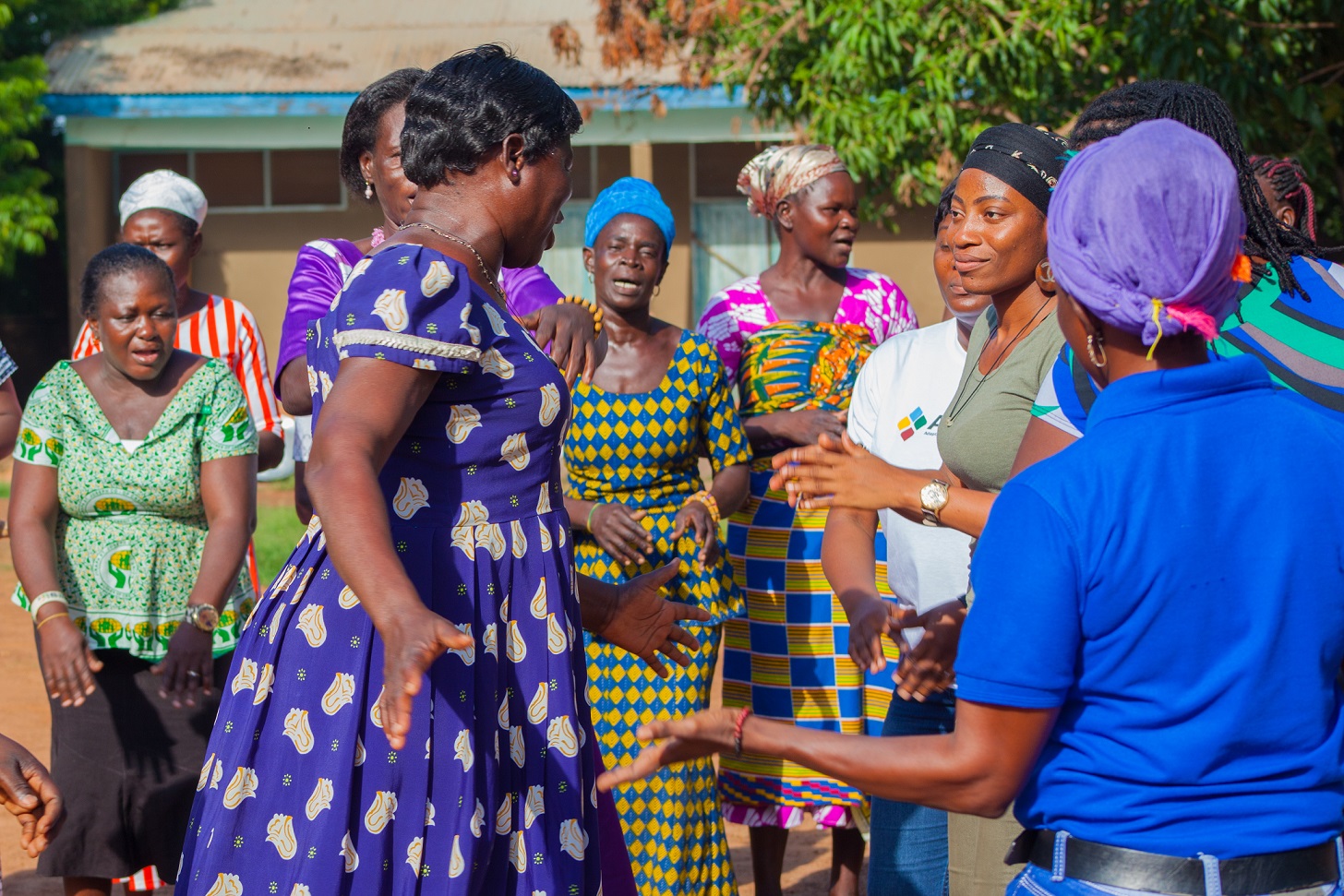
Policy makers, government ministries, and practitioners should tailor water management to the needs of different social groups, prioritise provision of accurate and timely rainfall information, and strengthen technical capacities for maintaining water infrastructure. Further, to increase uptake among farmers, measures need to be taken to integrate traditional irrigation approaches that are culturally accepted with more modern mechanised approaches and financing.

Migration is often seen, in an overly simplistic manner, as a favourable adaptation response to combined stressors, but this is not necessarily the case. Migration is not always an available or desirable option. A focus should be placed on supporting sustainable adaptation options for those for whom migration is not a viable option.

Traditional patriarchal norms have favoured males and promoted structural inequalities among females in terms of decision making, access to and control over land for agricultural activities, and the ability to engage in more productive livelihoods. Recognising gendered dimensions of land tenure, and improving access and ownership rights for women and marginalised groups, is central to identifying successful adaptation strategies for the future.
Click here for more detail, and ASSAR's specific recommendations for policy, practice, and research
Country partners and contact details
| Adelinah Mensah (ammensah@staff.ug.edu.gh), University of Ghana | |
| Mary Thompson-Hall (mthompson-hall@start.org), START | |
| Daniel Morchain (danielmorchain@gmail.com), Oxfam GB | |
| Colleen Magner (magner@reospartners.com), Reos Partners |
Click here to view the regional team members
Related news stories
Related outputs
|
Type |
Author(s) |
Year |
Title |
Details |
Links |
|---|---|---|---|---|---|
| Book chapter | D’Souza, M., Rao, B. and Awashi, S. | 2016 | Community-driven vulnerability assessment and resilience building: Cases from development contexts. | Multi-level climate change planning: Scale, capacity and the ability for local action. | In: S. Moloney, H. Fuenfgeld and M. Granberg (eds.) Local Action on Climate Change. London, UK: Routledge, pp. 92-110. |
| Book chapter | Shaibu, M. T., Alhassan, S. I., Avornyo, F. K., Lawson, E. T., Mensah, A. and Gordon, C. | 2019 | Perceptions and determinants of the adoption of indigenous strategies for adaptation to climate change: Evidence from smallholder livestock farmers in north-west Ghana. | In: J. K. Kuwornu (ed.) Climate Change and Sub-Saharan Africa: The vulnerability and adaptation of food supply chain factors. Vernon Press, pp. 229-249. | |
| Brochure/flyer | ASSAR | 2016 | ASSAR adaptation puzzle. [Puzzle] | Brochure | |
| Brochure/flyer | Basu, R. and Morchain, D. | 2017 | On a road trip to find common ground: Can the goals of the private sector be compatible with sustainable development? [Comic] | ||
| Brochure/flyer | D’Souza, M. and Misquitta, K. | 2018 | From me to we...from mine to ours! A story of how motivation changes people’s perceptions and drives community action. [Story of Change] | ||
| Infographic | ASSAR | 2018 | Challenging assumptions about gender and climate adaptation. | Oshiwambo infographic | |
| Infographic | ASSAR | 2018 | Do women farmers have a fair share of land for food security and sustainable adaptation? | ||
| Infographic | ASSAR | 2018 | Dreaming of a better life: Let’s recognise and value people’s changing aspirations. | ||
| Infographic | ASSAR | 2018 | Gender is one of many factors that influence how we are impacted by and respond to climate change. | Oshiwambo infographic | |
| Infographic | ASSAR | 2018 | Household relationships help determine whether and how we can – or can’t – respond to pressures. | ||
| Infographic | ASSAR | 2018 | In semi-arid regions, women are not necessarily victims or powerless: They are often diversifying their livelihoods and increasing their agency. | ||
| Infographic | ASSAR | 2018 | Multiscale governance: The paradox of top-down policy design. | French infographic | |
| Infographic | ASSAR | 2018 | Sometimes our interventions can lead to unintended consequences: A well does not always lead to wellbeing. | ||
| Infographic | ASSAR | 2018 | What global warming of 1.5°C and higher means for Ghana. | ||
| Information brief | Adiku, P. and Khan, A. | 2018 | Migration in climate change hotspots: Opportunities and challenges for adaptation. | Collaborative Adaptation Research Initiative in Africa and Asia (CARIAA). | |
| Information brief | ASSAR | 2015 | How can climate change adaptation in the semi-arid regions of West Africa be more effective and widespread? Evidence from Ghana and Mali. | ||
| Information brief | ASSAR | 2015 | Planning for climate change in the dryland areas of West Africa. | ||
| Information brief | ASSAR | 2015 | West Africa regional diagnostic study: Report summary. | ||
| Information brief | ASSAR | 2016 | Barriers and enablers of climate change adaptation in semi-arid Ghana. | ||
| Information brief | ASSAR | 2016 | How can we better understand and manage the impacts of droughts? | ||
| Information brief | ASSAR | 2016 | What is Transformative Scenario Planning? | ||
| Information brief | ASSAR | 2018 | Do conservancies enhance the adaptive capacity of communities? Perspectives from ASSAR’s work in Kenya. | ||
| Information brief | ASSAR | 2018 | The gendered challenges of food security: Stories and lessons from ASSAR. | ||
| Information brief | ASSAR | 2018 | What will global warming of 1.5°C and 2°C above pre-industrial levels mean for semi-arid regions? | ||
| Information brief | ASSAR | 2018 | Women, work and adaptive capacity. | ||
| Information brief | ASSAR | 2019 | A focus on wellbeing can link adaptation to outcomes that matter to people. | ||
| Information brief | ASSAR | 2019 | Adaptation is about people. | ||
| Information brief | ASSAR | 2019 | Does villagisation enhance the adaptive capacity of pastoralist communities? Perspectives from ASSAR's work in Ethiopia. | ||
| Information brief | ASSAR | 2019 | Supporting resilient agriculture in semi-arid Ghana. | ||
| Information brief | ASSAR | 2019 | What global warming of 1.5°C and higher means for Ghana. | ||
| Information brief | Bosworth, B., Hegga, S. and Ziervogel, G. | 2018 | When participation is not enough: Lessons from decentralised water governance in Namibia. | ||
| Information brief | CARIAA | 2018 | Climate adaptation policy. | ||
| Information brief | CARIAA | 2018 | Understanding vulnerabilities using a hotspot approach. | Collaborative Adaptation Research in Africa and Asia (CARIAA) | |
| Information brief | Few, R. | 2017 | Drought does not work alone. | ||
| Information brief | Few, R., Singh, C., Spear, D., Davies, J., Tebboth, M. G. L., Sidibe, A, Mensah, A. and Thompson-Hall, M. | 2018 | When adaptation barriers and enablers intersect: Key considerations for adaptation planning drawn from ASSAR’s findings. | ||
| Information brief | Lumosi, C. and McGahey, D. | 2016 | Communicating climate change for adaptation: Challenges, successes and future priorities. | ||
| Information brief | Rao, N., Lawson, E. T., Raditloaneng, W. N., Solomon, D. and Angula, M. N. | 2016 | Gendered vulnerabilities to climate change: Insights from the semi-arid regions of Africa and Asia. | GSDR brief | |
| Journal article | Abass, R., Mensah, A. and Fosu-Mensah, B. | 2018 | The role of formal and informal institutions in smallholder agricultural adaptation: The case of Lawra and Nandom Districts, Ghana. | West African Journal on Applied Ecology, 26: 56-72. | |
| Journal article | Ahmed, A., Lawson, E. T., Mensah, A., Gordon, C. and Padgham, J. | 2016 | Adaptation to climate change or non-climatic stressors in semi-arid regions? Evidence of gender differentiation in three agrarian districts of Ghana. | Environmental Development, 20: 45-58. | Summary |
| Journal article | Cundill, G., Harvey, B., Tebboth, M., Cochrane, L., Currie-Alder, B., Vincent, K., Lawn, J., Nicholls, R. J., Scodanibbio, L., Prakash, A., New, M., Wester, P., Leone, M., Morchain, D., Ludi, E., DeMaria-Kinney, J., Khan, A. and Landry, M. | 2018 | Large-scale transdisciplinary collaboration for adaptation research: Challenges and insights. | Global Challenges, 1700132. | |
| Journal article | Deshpande, T., Michael, K. and Bhaskara, K. | 2018 | Barriers and enablers of local adaptive measures: A case study of Bengaluru’s informal settlement dwellers. | Local Environment, DOI: 10.1080/13549839.2018.1555578. | Information brief |
| Journal article | Few, R. and Tebboth, M. G. L. | 2018 | Recognising the dynamics that surround drought impacts. | Journal of Arid Environments, 157: 113-115. | Summary; Information brief |
| Journal article | Few, R., Morchain, D., Spear, D., Mensah, A. and Bendapudi, R. | 2017 | Transformation, adaptation and development: Relating concepts to practice. | Palgrave Communications, 3: 17092. | Summary |
| Journal article | Gajjar, S. P., Singh, C. and Deshpande, T. | 2018 | Tracing back to move ahead: A review of development pathways that constrain adaptation features. | Climate and Development. | Summary |
| Journal article | Lawson, E. T., Alare, R. S., Salifu, A. R. Z. and Thompson-Hall, M. | 2019 | Dealing with a changing climate in semi-arid Ghana: Understanding intersectional perceptions and adaptation strategies of women farmers. | GeoJournal. | |
| Journal article | McGahey, D. J. and Lumosi, C. K. | 2018 | Information brief | ||
| Journal article | Morchain, D., Prati, G., Kelsey, F. and Ravon, L. | 2015 | Summary | ||
| Journal article | Olabisi, L. S., Liverpool-Tasie, S., Rivers III, L., Ligmann-Zielinska, A., Du, J., Denny, R., Marquart-Pyatt, S. and Sidibé, A. | 2018 | Using participatory modeling processes to identify sources of climate risk in West Africa. | Environment Systems and Decisions, 38(1): 23-32. | Summary |
| Journal article | Rao, N., Lawson, E. T., Raditloaneng, W. N., Solomon, D., and Angula, M. N. | 2017 | Gendered vulnerabilities to climate change: Insights from the semi-arid regions of Africa and Asia. | Climate and Development. | Information brief |
| Journal article | Singh, C. | 2017 | Using life histories to understand temporal vulnerability to climate change in highly dynamic contexts. | SAGE Research Methods Cases. | Summary; Manual |
| Journal article | Singh, C. | 2019 | Migration as a driver of changing household structures: Implications for household livelihoods and adaptation. | Migration and Development. | Summary |
| Journal article | Singh, C., Daron, J., Bazaz, A., Ziervogel, G., Spear, D., Krishnaswamy, J., Zaroug, M. and Kituyi, E. | 2018 | The utility of weather and climate information for adaptation decision-making: Current uses and future prospects in Africa and India. | Climate and Development, 10(5): 389-405. | Summary |
| Journal article | Spear, D. and Chappel, A. | 2018 | Livelihoods on the edge without a safety net: The case of smallholder crop farming in north-central Namibia. | Land, 7(3): 79. | Summary |
| Journal article | Totin, E., Butler, J. R., Sidibé, A., Partey, S., Thornton, P. K. and Tabo, R. | 2018 | Can scenario planning catalyse transformational change? Evaluating a climate change policy case study in Mali. | Futures, 96: 44-56. | Summary |
| Journal article | Totin, E., Segnon, A. C., Schut, M., Affognon, H., Zougmoré, R. B., Rosenstock, T., and Thornton, P. K. | 2018 | Institutional perspectives of climate-smart agriculture: A systematic literature review. | Sustainability, 10(6): 1990. | Summary |
| Journal article | Wood, A., Rivers III, L., Ligmann-Zielinska, A. and Ansah, P. | 2019 | Examining climate change and food security in Ghana through an intersectional framework. | Journal of Peasant Studies. | |
| Journal article | Yidana, A., Mensah, A., Salifu, M. and Owusu, K. | 2018 | Social differences in the vulnerability and adaptation patterns among smallholder farmers: Evidence from Lawra District in the upper west region of Ghana. | Journal of Economics and Sustainable Development, 9(10): 175-187 . | Summary |
| Publication in progress | Alare, R. S. and Segnon, A. | _ | Landscape transformational analysis in semi-arid areas: Case study of Ghana and Mali. | ||
| Publication in progress | Alare, R. S., Lawson, E. T., Mensah, A., Ansah, P. and Adiku, P. | _ | Social networks, gender relations, and climate change adaptation in the semi-arid region of Ghana. | ||
| Journal article | Conway, D., Nicholls. R.J., Brown, S., Tebboth, M. G. L., Adger, N., Bashir, A., Biemans, H., Crick, F., Lutz, A. F., de Campos, R. S., Said, M., Singh, C., Zaroug, M. A. H., Ludi, E., New, M. and Wester, F. | 2019 | Recognising the need for bottom-up assessments of climate risks and adaptation in climate-sensitive regions. | ||
| Publication in progress | Duraisamy, V., Mugari, E., Segnon, A. C., Togarepi, C., Tesfaye, M., Alare, R. S. and Misra, G. | _ | Landsat-based land use / land cover mapping and cross-site analysis at South Asia and Africa. | ||
| Publication in progress | Few, R., Singh, C., Spear, D., Tebboth, M., Davies, J., Thompson-Hall, M. and Muhvich, K. | _ | The role of culture as a barrier and enabler to adaptation in semi-arid lands. | ||
| Publication in progress | Hegga, S. and Kunamwene, I. | _ | Mapping actor influence in climate adaptation practices: The case of north-central Namibia. | Poster | |
| Publication in progress | Hegga, S., Kunamwene, I. and Ziervogel, G. | _ | Local participation in decentralised water governance: Insights from north-central Namibia. | Presentation | |
| Publication in progress | Kibet, S. and Wasonga, O. | _ | Making community wildlife conservancies sustainable. | ||
| Publication in progress | Krishnaswamy, J., Bunyan, M., New, M., Bazaz, A., Wolski, P. and Daron, J. | _ | Are semi-arid regions in Africa and Asia climate-change hotspots? | ||
| Publication in progress | Maharjan, A., de Campos, R. S. Das, S., Srinivas, A., Bhuiyan, M. R. A., Ishaq, S., Shrestha, K., Dilshad, T., Umar, M. A., Bhadwal, S., Ghosh, T., Singh, C., Suckall, N. and Vincent. K. | _ | Migration and adaptation in the context of environmental change: Lessons from interdisciplinary work in South Asia. | ||
| Publication in progress | Mulwa, C. and Visser, M. | _ | Weather uncertainty and demand for information in agricultural technology adoption: Case study from Namibia. | ||
| Publication in progress | Ofoegbu, C. and New, M. | _ | The effect of inter-organisational collaboration networks on climate knowledge flows and communication to rural farmers in Ghana. | ||
| Publication in progress | Perez, T. | _ | The power of workshop fatigue in transdisciplinary partnerships. | Summary | |
| Publication in progress | Rahman, A., Basu, R. and Singh C. I. | _ | Exploring the interface between climate change and migration: Evidence from India. | ||
| Publication in progress | Rahman, A., Singh, C. and Bazaz A. | _ | Climate change in urban areas: Differential vulnerability and adaptive actions in Bangalore. | ||
| Publication in progress | Rao, N., Mishra, A., Prakash, A., Singh, C., Qaisrani, A., Poonacha, P., Vincent, K. and Bedelian, C. | _ | Women’s agency and adaptive capacity in climate change hotspots: A qualitative comparative analysis from Asia and Africa. | ||
| Publication in progress | Rao, N., Singh, C., Solomon, D., Camfield, L., Alare, R. S., Angula, M., Poonacha P., Sidibe, A. and Lawson, E. | _ | Managing risk, changing aspirations and household dynamics: Implications for wellbeing and adaptation in semi-arid Africa and India. | Summary; Presentation | |
| Publication in progress | Salifu, A., Lawson, E. and Wrigley-Asante, C. | _ | Social differentiation and adaptive responses adopted by farmers in a water scarce landscape: The case of groundnut farmers in the Lawra and Nandom Districts. | Poster | |
| Publication in progress | Satyal, P., Budds, J., Few, R., Bahir, A., Kibet, S. | _ | Adaptation to climate change in the context of decentralisation: Exploring multi-level governance of water-related issues in semi-arid areas of East Africa. | Presentation | |
| Publication in progress | Scodanibbio, L. | _ | What have we learned from working collaboratively on the ASSAR project? | ||
| Publication in progress | Shaibu, M. T., Onumah, E. E. and Al-Hassan, R. M. | _ | A comparative analysis of levels and intensity of adoption of climate change adaptation strategies among livestock farmers in North-West Ghana. | ||
| Publication in progress | Shaibu, M. T., Onumah, E. E., Al-Hassan, R. M. and Kuwornu, J. K. M. | _ | An assessment of vulnerability to climate change and its determinants among smallholder livestock farmers in Ghana’s Upper West Region. | ||
| Publication in progress | Sidibe, A., Sanga. U., Rajiv. P. and Olabisi, L. S. | _ | Translating mental models into system dynamics models for analyzing food security. | ||
| Publication in progress | Sidibe, A., Totin, E. and Olabisi, L. S. | _ | Analysing consensus building in the participatory scenario process: A case of transformative scenario process in Mali. | ||
| Publication in progress | Singh, C., Tebboth, M. G. L., Spear, D., Ansah, P. and Mensah, A. | _ | Opening up the methodological toolkit on climate change vulnerability and adaptation research: Reflections from using life history approaches. | ||
| Publication in progress | SK, N. | _ | Situating vulnerability in climate change adaptation research: Insights from India and Ghana. | ||
| Publication in progress | SK, N., Bazaz, A., Mensah, A., Scodanibbio, L., Tebboth, M., Few, R., Bendapudi, R., Rao, R., Badiger, S., Rao, N., Kibet, S., Wasonga, O. and Spear, D. | _ | Socially-differentiated vulnerability and adaptation practice in Africa and India. | ||
| Publication in progress | Solomon, D. and Badiger, S. | _ | The evolution of vulnerability: Rethinking the scope of indicator-based assessments in agrarian socio-ecological systems. | ||
| Journal article | Spear, D., Selato, J. C., Mosime, B. and Nyamwanza, A. | 2019 | Harnessing diverse knowledge and belief systems to adapt to climate change in semi-arid rural Africa. | Summary; Presentation | |
| Publication in progress | Tebboth, M. G. L., Few, R., Assen, M. and Degefu, M. | _ | Valuing Prosopis juliflora? Analysing ecosystem service narratives to understand environmental management dilemmas. | ||
| Publication in progress | Tebboth, M. G. L., Singh, C., Spear, D., Mensah, A. and Ansah, P. | _ | The role of mobility in changing livelihood trajectories: Implications for vulnerability and adaptation in semi-arid regions. | Summary | |
| Publication in progress | Totin, E., Sidibe, A. and Thompson-Hall, M. | _ | Governance of resources: Is there space for implementing the land policy under complex customary tenure practices? | Presentation | |
| Publication in progress | Totin, E., Sidibe, A., Thompson-Hall, M. and Olabisi, L. | _ | Achieving sustainable future objectives under uncertain conditions: Application of a reflexive framework to adaptation trajectories in rural Mali. | Summary | |
| Publication in progress | Wasonga, O., Kibet, S., Tebboth, M. G. L., Few, R. | _ | Do wildlife conservancies enhance the adaptive capacity of local communities? Perspectives from northern Kenya. | ||
| Publication in progress | Ziervogel, G., Satyal, P., Basu, R., Mensah, A. and Singh, C. | _ | Vertical integration for climate change adaptation in the water sector: Lessons from decentralisation in Africa and India. | ||
| Radio/podcast | ASSAR | 2015 | ASSARWA pilot radio podcast in Ghana. [Podcast]. | ||
| Report | Alare, R. S., Adiku, P., Ansah, P., Mensah, A., Lawson, E. T., Thompson-Hall, M. and Hoffman, T. | 2017 | Using Transformative Scenario Planning to think critically about the future of agriculture and food security in the Upper West region of Ghana. | ||
| Report | ASSAR | 2019 | Changing ecosystem services are increasing people’s vulnerability in semi-arid regions. | ||
| Report | ASSAR | 2019 | Collaborative research consortia are complex, but have great potential. | ||
| Report | ASSAR | 2019 | Effective adaptation means different things to different people. | ||
| Report | ASSAR | 2019 | Forward-looking inclusive governance arrangements across different scales are a critical enabler for adaptation | ||
| Report | ASSAR | 2019 | Enhanced knowledge systems are critical for climate change adaptation. | ||
| Report | ASSAR | 2019 | Gender is one of many social factors influencing responses to climate change. | ||
| Report | ASSAR | 2019 | Global warming of 1.5°C and higher brings profound challenges to semi-arid regions. | ||
| Report | ASSAR | 2019 | Mobility is an inherent dynamic among vulnerable populations. | ||
| Report | ASSAR | 2019 | Participatory processes build adaptive capacity and agency and can help transform systems. | ||
| Report | ASSAR | 2019 | Putting people at the centre can enable effective adaptation in semi-arid regions: Insights from ASSAR. | Summary | |
| Report | ASSAR | 2019 | Vulnerability and adaptation to climate change in semi-arid Ghana. | ||
| Report | Mensah, A., Lawson E. T., Alare, R. S. and Ansah, P. | 2015 | ASSAR West Africa Research-into-Use training workshop: Transformative Scenario Planning, stakeholder mapping and analysis, and Vulnerability and Risks Assessment. | ||
| Report | Nkemelang, T., Bouwer, R., Hoffman, T., and New, M. | 2018 | Determining what global warming of 1.5°C and higher means for the semi-arid regions of Botswana, Namibia, Ghana, Mali, Kenya and Ethiopia: A description of ASSAR’s methods of analysis. | ||
| Report | Rokitzki, M. and Morchain, D. | 2015 | Climate change adaptation practice in semi-arid regions: Views and insights by practitioners. | ||
| Spotlight | ASSAR | 2015 | Spotlight on Adaptation Futures. | ||
| Spotlight | ASSAR | 2016 | Spotlight on learning. | ||
| Spotlight | ASSAR | 2016 | Spotlight on wellbeing. | ||
| Spotlight | ASSAR | 2017 | Spotlight on champions. | ||
| Spotlight | ASSAR | 2017 | Spotlight on water. | ||
| Spotlight | ASSAR | 2018 | Spotlight on capacity building. | ||
| Spotlight | ASSAR | 2018 | Spotlight on Transformative Scenario Planning. | ||
| Spotlight | ASSAR | 2019 | Spotlight on Research for Impact. | ||
| Thesis | Abass, R. | 2018 | Formal and informal institutions in climate change adaptation: the case of Lawra and Nandom districts in the upper west region. | Master's thesis. University of Ghana. | Poster |
| Thesis | Akugre, F.A. | 2017 | Implications of land tenure rights on farmers’ adaptive capacity to climate variability and change in semi-arid North-Western Ghana: The case of crop farmers in the Lawra district. | Master's thesis. University of Ghana. | |
| Thesis | Assabil, B. | 2017 | Women farmers’ perception to climate change/variability and their adaptation strategy in the Lawra district. | Master's thesis. University of Ghana. | |
| Thesis | Bachuri, K. | 2019 | Assessing the availability, access and use of medicinal plants in the Lawra and Nandom districts of the upper west region. | Master's thesis. University of Ghana. | |
| Thesis | Biney, A. | 2019 | The role of remittances on adaptive capacity of smallholder farmers in Lawra district. | Master's thesis. University of Ghana. | |
| Thesis | Bridges, K. | 2017 | The role of climate information and advisory services in drought resiliency: A comparative case study in Tamil Nadu, India. | Master's thesis. Oxford University. | |
| Thesis | Gitonga, Z. | _ | Leveraging climate information, improved adaptive technology and migration to build resilience and reduce vulnerability of rural communities to climate risks in arid and semi-arid lands. | PhD thesis. University of Cape Town. | |
| Thesis | Kaba-Ayamba, O. | _ | The influence of adaptation intervention from ecosystem services and wellbeing: A comparative study in the Lawra and Nandom districts of Upper West Ghana. | PhD thesis. University of Ghana. | |
| Thesis | Koomson, E. | _ | Enhancing the provision and management of ecosystem services in agricultural landscapes for climate change adaptation in the upper west region of Ghana. | PhD thesis. University of Ghana. | |
| Thesis | Kumadey, C. | _ | Improving market systems for non-timber forest products as a climate change adaptation strategy: A case study of Lawra district. | Master's thesis. University of Ghana. | |
| Thesis | Lente, I. | 2017 | Poster | ||
| Thesis | Mulwa, C. | _ | Managing vulnerability to risks in smallholder farming: Essays on sustainable agricultural intensification and climate change adaptation in developing countries. | PhD thesis. University of Cape Town. | |
| Thesis | Nkemelang, T. | 2018 | Temperature and precipitation extremes under current, 1.5 and 2.0 degree global warming above pre-industrial levels and implications for climate change vulnerability: Botswana case study. | Master's thesis. University of Cape Town. | |
| Thesis | Omari, S. | _ | Vulnerability and adaptation of farming households to climatic and non-climatic stressors in semi-arid Ghana. | PhD thesis. University of Ghana. | Poster |
| Thesis | Sajith, S. | 2017 | Changing cropping patterns and its implications on household food security and nutrition. | Master's thesis. TERI School of Advanced Studies. | |
| Thesis | Salifu, A. R. | 2016 | Social differentiation in livelihood vulnerability and adaptation: A study of groundnut production in the upper west region. | Master's thesis. University of Ghana. | Poster |
| Thesis | Segnon, A. | _ | Exploring the role of agrobiodiversity in climate change adaptation in semi-arid areas of West Africa: A case study in Mali. | PhD thesis. University of Ghana. | |
| Thesis | Shaibu, M. T. | 2016 | Climate change adaptation strategies of small livestock farmers of Nandom and Lawra. | Master's thesis. University of Ghana. | Poster |
| Thesis | Sulemana, A. | 2017 | Management and use of non-timber forest products (NTFPs) as climate change adaptation strategy in Lawra district, Ghana. | Master's thesis. University of Ghana. | |
| Thesis | Yidana, A. A. | 2016 | Social differentiation in the vulnerability and adaptation patterns among smallholder farmers: Evidence from north western Ghana. | Master's thesis. University of Ghana. | |
| Thesis | Zulfawo, T. A. | 2016 | Exploring the competing uses of water in the context of climate variability and change in the Lawra district. | Master's thesis. University of Ghana. | |
| Toolkit/guide | ASSAR | 2016 | Climate adaptation resource guide for dryland & semi-arid areas. [Resource Guide] | ||
| Toolkit/guide | ASSAR | 2018 | Advisory for dry season farming in semi-arid Ghana. [Information Sheet] | ||
| Toolkit/guide | ASSAR | 2018 | Heat stress: How does one recognise heat stress? What should you do when a person suffers from heat stress? [Pamphlet] | Poster | |
| Toolkit/guide | ASSAR | 2018 | Planning for a harsher future. [Brochure] | English poster; Oshiwambo brochure; Oshiwambo poster | |
| Toolkit/guide | ASSAR, Oxfam, University of Cape Town | 2019 | Massive Open Online Course on Research for Impact. [MOOC] | ||
| Toolkit/guide | Davies, J., Singh, C., Tebboth, M. G. L., Spear, D., Mensah, A. and Ansah, P. | 2018 | Conducting life history interviews: A how-to guide. [Manual] | ||
| Toolkit/guide | Hegde, G., Singh, C. and Kaur, H. | 2018 | Adaptation as innovation: Lessons from smallholder farmers in rainfed Karnataka. [Information Booklet] | Kannada booklet | |
| Toolkit/guide | Morchain, D. and Kelsey, F. | 2016 | Finding ways together to build resilience: The Vulnerability and Risk Assessment methodology. [Toolkit] | Oxfam. | Poster |
| Video | ASSAR | 2015 | ASSAR Theory of Change. | ||
| Video | ASSAR | 2015 | ASSAR’s animated climate messages for Africa and Asia. | ||
| Video | ASSAR | 2015 | ASSAR’s animated climate messages for West Africa. | ||
| Video | ASSAR | 2015 | Introducing ASSAR. | ||
| Video | ASSAR | 2015 | Understanding gender in the context of climate and development. | ||
| Video | ASSAR | 2016 | ASSAR student research at the University of Ghana. | ||
| Video | ASSAR | 2016 | Research-into-Use in ASSAR. | ||
| Video | ASSAR | 2016 | Transformative Scenario Planning in ASSAR. | ||
| Video | ASSAR | 2017 | Does climate information help people address current and future climate risks? | ||
| Video | ASSAR | 2017 | Experiential learning to understand climate change. | ||
| Video | ASSAR | 2017 | Experiential learning: Farming Juggle. | ||
| Video | ASSAR | 2017 | Experiential learning: Paying for Predictions. | ||
| Video | ASSAR | 2017 | Experiential learning: Seasonal Forecast. | ||
| Video | ASSAR | 2017 | Experiential learning: Vulnerability Walk. | ||
| Video | ASSAR | 2017 | Research outcomes into use: Reflections on the Research-into-Use training in Ghana. | ||
| Video | ASSAR | 2017 | Small Opportunities Grant: Migration. | ||
| Video | ASSAR | 2017 | Transformative Scenario Planning in Ghana - Part 1. | ||
| Video | ASSAR | 2017 | Transformative Scenario Planning in Ghana - Part 2. | ||
| Video | ASSAR | 2018 | Climate change adaptation and food security in semi arid regions of Ghana: The role of research and research-into-use. | ||
| Video | ASSAR | 2018 | Empowering women leaders in Ghana’s Upper West region to adapt to climate change. | ||
| Video | ASSAR | 2018 | How thinking about the future improved farming practices in Ghana’s Upper West region. | ||
| Video | ASSAR | 2018 | Preparing for the future of agriculture and food in Ghana’s Upper West region. | ||
| Video | ASSAR | 2018 | Theatre of the oppressed: Adaptation futures 2018. | ||
| Video | ASSAR | 2019 | Challenging predominant views on climate change with Theatre of the Oppressed. Delft, Cape Town. January 2019. | ||
| Video | ATREE | 2019 | Is an increase in green cover good? | ||
| Video | ATREE | 2019 | Wells and a lack of wellbeing. | ||
| Web article | Cundill, G. | 2017 | ASSAR–R2A Climate Month: Time’s Up. | Research to Action. 4 December 2017. | |
| Web article | DeMaria-Kinney, J. | 2017 | Introduction to Research-into-Use at ASSAR. | Research to Action. 9 November 2017. | |
| Web article | Joubert, L. | 2018 | African small-scale farmers need more than just land to survive climate change. | The Namibian. 31 May 2018. | Use and communication of climate information to support uptake of adaptation action in the semi-arid regions of Africa and Asia. |
| Working paper | Bazaz, A., DeMaria-Kinney, J., Scodanibbio, L. and Koduganti Venkata, M. | 2019 | Enabling research-practice collaboration: Models and approaches | ||
| Working paper | Few, R., Bendapudi, R., Mensah, A. and Spear, D. | 2016 | Transformation in adaptation: Learning from ASSAR’s regional diagnostic studies. | ||
| Working paper | Koelle, B., Scodanibbio, L., Vincent, K., Harvey, B., van Aalst, M., Rigg, S., Ward, N. and Steenbergen, M. | _ | A guide to effective collaboration and learning in consortia: Building resilience to rising climate risks. | Original publication by Building Resilience and Adaptation to Climate Extremes and Disasters (BRACED). | |
| Working paper | Misquitta, K. and Thatte, K. | 2018 | Whose appropriate technology? Understanding the adoption of micro-irrigation in the face of climate and policy uncertainty. | ||
| Working paper | Padgham, J., Ahmed, A., Ayivor, J., Dietrich, K., Fosu-Mensah, B., Gordon, C., Habtezion, S., Lawson, E., Mensah, A., Nukpezah, D., Ofori, B., Piltz, S., Sidibe, A., Sissoko, M., Totin, E. and Traoré, S. | 2015 | Vulnerability and adaptation to climate change in the semi-arid regions of West Africa. | ||
| Working paper | Phadtare, A., Banerjee, S. and Bendapudi, R. | 2019 | Are changes in land use land cover influencing gender dynamics in semi-arid areas. | ||
| Working paper | Prakash, A., Cundill, G., Scodanibbio, L., Vincent, K., Nathe, N., DeMaria-Kinney, J., Mishra, A., Morchain, D., Piryani, A., Soumelong Ehode, L., and Sukla, D. | 2019 | Climate change adaptation research for impact. | CARIAA Working Paper no. 22. Collaborative Adaptation Research in Africa and Asia (CARIAA). | |
| Working paper | Scodanibbio, L. | 2017 | What have we learned from working collaboratively on the ASSAR project? | Adaptation at Scale in Semi-Arid Regions (ASSAR). | |
| Working paper | Singh, C., Urquhart, P. and Kituyi, E. | 2016 | From pilots to systems: Barriers and enablers to scaling up the use of climate information services in smallholder farming communities. | ||
| Working paper | Zaroug, M., New, M. and Lennard, C. | 2019 | Climate change in African countries at 1.5 and 2.0 degrees: Variation by geography, aridity and continentality. | ||
| Video | ASSAR | 2019 | Does knowledge enhance adaptive capacities in semi-arid regions? Perspectives from ASSAR's work. |




